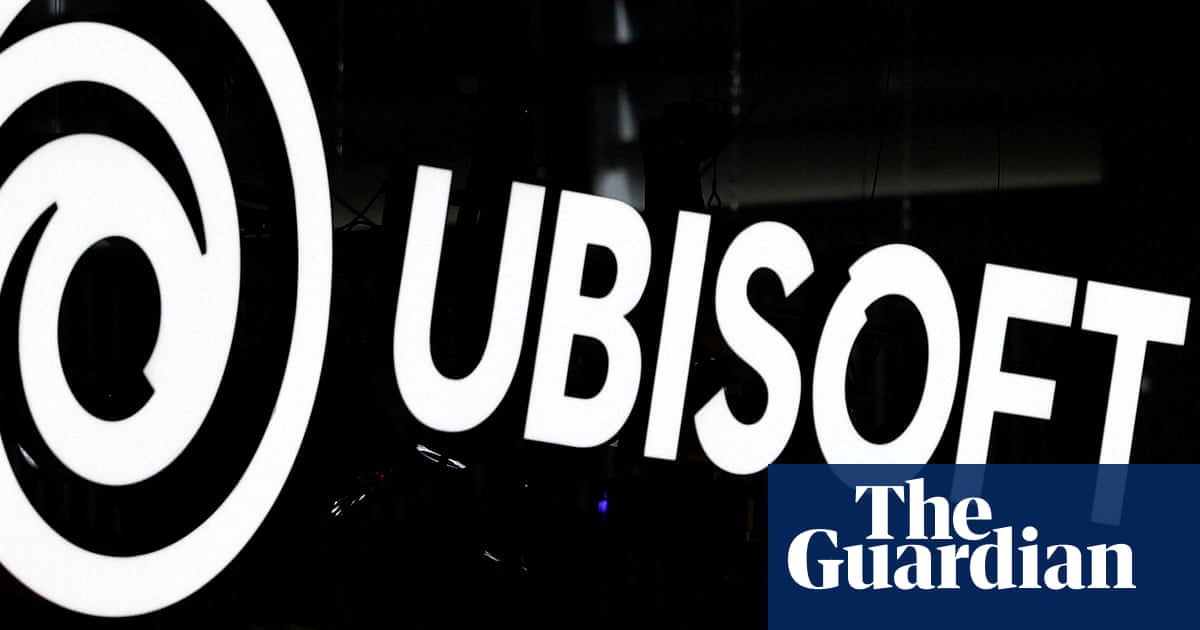The first big trial to result from the#MeToomovement in thevideo games industrybegan in France on Monday, with three former executives from the French video game companyUbisoftaccused of sexual harassment and bullying, one of whom is also accused of attempted sexual assault.
Ubisoft, the French family business that rose to become one of the biggest video games creators in the world, is behind several blockbusters includingAssassin’s Creed,Far Cryand the children’s favouriteJust Dance.
A court in Bobigny in Seine-Saint-Denis will hear that between 2012 and 2020 the company’s offices in Montreuil, east of Paris, were run with a toxic culture of bullying and sexism that one member of staff likened to a “boys’ club above the law”.
Women alleged to police – also against individuals unidentified in the case – that sexual comments were made regularly about their bodies and clothes, that they were called “ugly” or “slut”, told to wear shorter skirts or lose weight, and obscene sexual hand gestures were made by senior male staff in the office.
One woman who wore a coat with a red lining was allegedly told by an executive: “That’s an invitation to rape.” Another woman was told: “That’s a nice dress, it’s giving me an erection.” If they expressed disapproval, women were told they “were not fun” and were not having enough sex.
Allegations included pornography films being played in the open-plan office and penises drawn on post-it notes and placed on workers’ screens. One woman was allegedly approached from behind by an executive who put earphones in her ears, saying: “This is the playlist I listen to when having sex.”
Men also allegedly approached female staff and, unsolicited, massaged their shoulders to “relax” them. One executive would approach seated staff and allegedly fart near their face, witnesses told police.
A female employee told police how she was allegedly tied to her office chair with rolls of tape then put in the lift and a random button was pressed. She said she arrived at another floor, “where I knew no one”, bound to the chair unable to move. The same woman allegedly had her face drawn on with marker pen and was forced to attend a meeting like that, prevented from washing it off. One woman wearing a skirt was allegedly forced to do a handstand in the office.
A young Muslim member of staff who did not eat pork allegedly found her screensaver changed to an image of a bacon sandwich. Sandwiches were allegedly placed on her desk or thrown at her during Ramadan. After the2015 jihadist attacks on the Bataclan concert hall in Paris, she was ostracised and asked if she supported Islamic State.
Junior male staff were also allegedly targeted, with a regular game of chase in which if a man was caught, his penis was touched through his trousers.
The three executives deny all the charges.
Serge Hascoët, 59, Ubisoft’s chief creative officer and second-in-command, who resigned after the allegations, is accused of sexual harassment and bullying. He is also accused of making sexual and sexist comments. He allegedly told staff that a senior employee was irritating because she did not have enough sex and that he should have sex with her in a meeting room in front of everyone “to show how to calm her”.
He is alleged to have handed a young female member of staff a tissue in which he had blown his nose, saying “you can resell it, it’s worth gold at Ubisoft”.
He denies all charges.
Hascoët’s lawyer, Jean-Guillaume Le Mintier, said: “Serge Hascoët categorically denies having harassed a single colleague. He denies any knowledge of reprehensible acts committed by collaborators at Ubisoft and did not receive any reports of this.”
Sign up toThis is Europe
The most pressing stories and debates for Europeans – from identity to economics to the environment
after newsletter promotion
Tommy François, 52, the former vice-president of editorial and creative services, is accused of sexual harassment, bullying and attempted sexual assault. He was dismissed for misconduct.
At a 2015 office Christmas party with a Back to the Future theme, François allegedly told a member of staff he liked her 1950s dress. He then allegedly stepped towards her to kiss her on the mouth as his colleagues restrained her by the arms and back. The woman said she shouted and broke free, and felt “traumatised”.
François denies all charges.
The former game director Guillaume Patrux, 41, also dismissed for misconduct, is accused of sexual harassment and bullying. He is alleged to have punched walls, mimed hitting staff, cracked a whip near colleagues’ faces and played with a cigarette lighter near workers, setting alight a man’s beard.
Patrux is also alleged to have thrown office equipment across the open-plan office space, kicked footballs across the office, thrown a metal key at a member of staff and drawn swastikas on a woman’s notebook as he sat near her in a meeting.
He denies all charges.
Ubisoft did not respond to a request for comment.
In 2020, when allegations weremade public, the firm’s chief executive, Yves Guillemot, told staff inappropriate behaviour would not be tolerated and disciplinary measures would be taken for any form of harassment.
